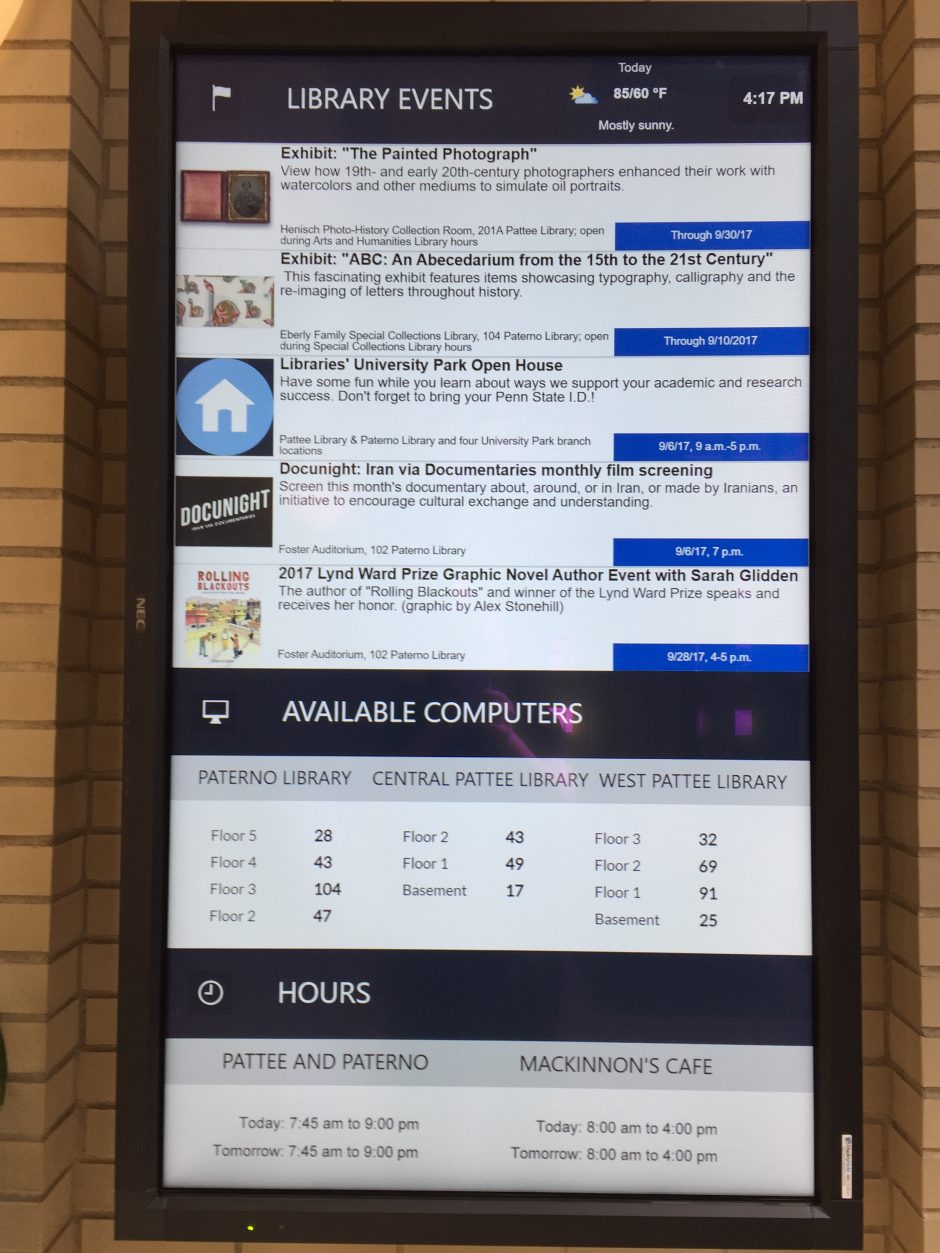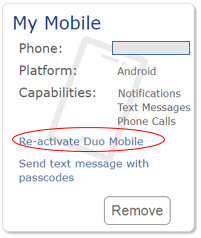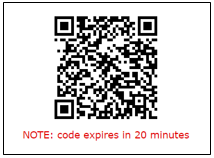
Updated Reserve a Group Study Room business-size promotional cards, posters and social media graphics help promote the new URL redirect — https://libraries.psu.edu/studyrooms — which goes to the LibCal system and is available to implement across all Libraries locations with group study rooms.
All Penn State students now can schedule library group study rooms through a single online system, and soon faculty and staff will see updates to how they request use of Foster Auditorium and what expectations the Libraries has for its use.
Group study rooms now reserved via LibCal
At the start of the fall 2017 semester, the Libraries began using a new room reservation system for students booking library group study rooms. The previous system, EMS, was replaced by LibCal (Springshare’s Equipment & Spaces module) at the end of the spring 2017 semester.
Ann Thompson, the Libraries’ LibCal product owner, worked with I-Tech and ITS to enable student users to access the reservation system using their Penn State credentials without creating an account, an improvement over previous requirements. As before, students can book group study rooms for up to three hours per day and two weeks in advance.
Students at all Libraries locations with group study rooms eventually will be able to use the same online system for reservations. Currently, students at Altoona, Beaver, Berks, Harrisburg, University Park and York are using LibCal for group study room reservations. The system is set up in 15-minute intervals with a booking default to a three-hour reservation, and students can easily change the length of time while making reservations.
LibCal sends a confirmation email to the student containing the reservation information as well as a link to cancel their booking. Online reservations can be made only by students at https://libraries.psu.edu/studyrooms.
Updates coming to Foster Auditorium request procedure and expectations for use
In other scheduling news, the Libraries soon will begin using the CollegeNET platform to schedule Foster Auditorium for both internal Libraries use and for external requests. Currently in the midst of a transitional phase toward full use by June 2018, CollegeNET is being implemented for event management use University-wide and already is being used for academic (classroom) scheduling at all campuses.
In recent months, a working group under the leadership of Associate Dean Anne Langley has been working on an update to Guideline UL-ADG03, “Use of Foster Auditorium.” The group, including Thompson, Emma Davidson, Athena Jackson, Rebecca Miller and Jill Shockey, has clarified priority uses, limitations/expectations and procedures for requesting and advertising use of the space. It is anticipated to be reviewed and approved at an upcoming Dean’s Library Council meeting.
The revised guideline has been updated to give external requesters a better understanding of Foster Auditorium’s primary purpose — for Libraries events, teaching and training — and outlines the Libraries’ expectations and best practices for its use.
Following the updated guideline’s approval, a date will be announced after which all requests for using Foster Auditorium must be submitted using CollegeNET. At the same time, Foster Auditorium will be removed from the UCS list of reservable locations. Please note: all existing UCS reservations will be migrated to CollegeNET.
Please watch for an announcement of a future Tech Update that will provide an overview of both LibCal and CollegeNET.
– submitted by Ann Thompson and Jill Shockey








